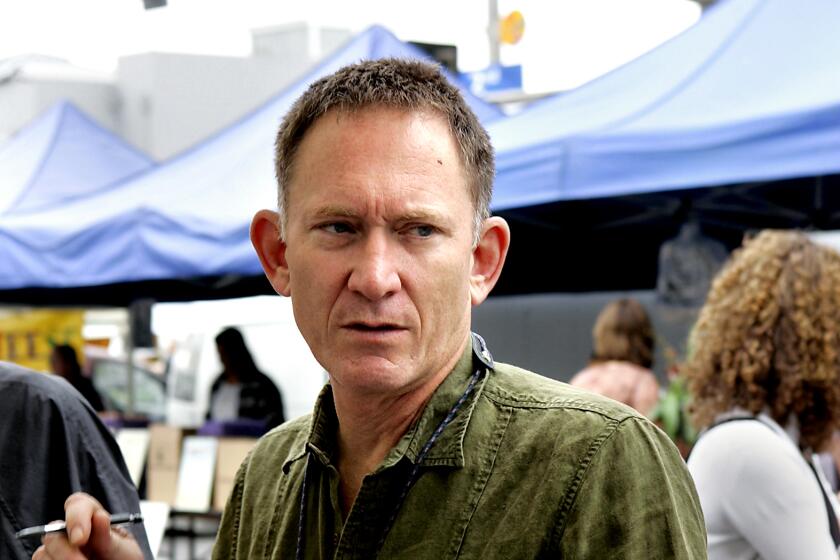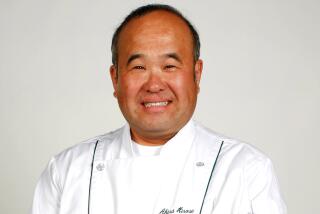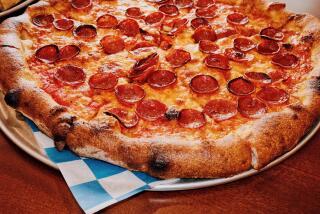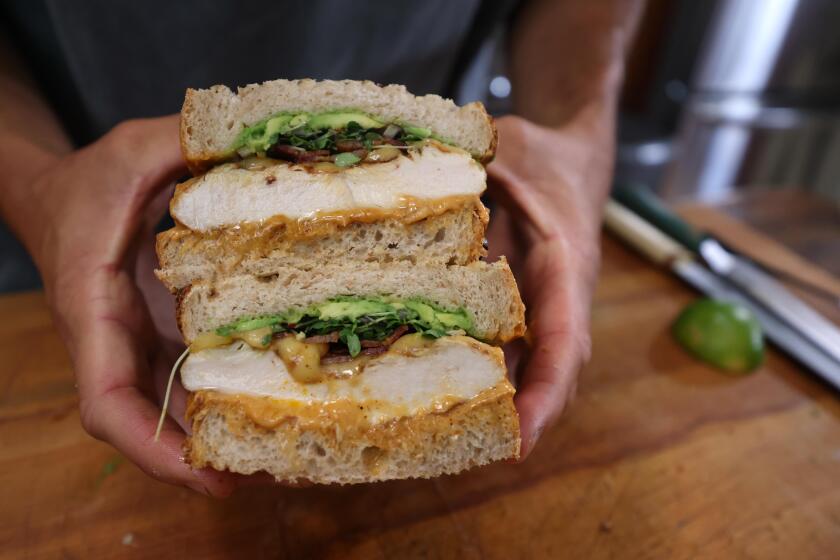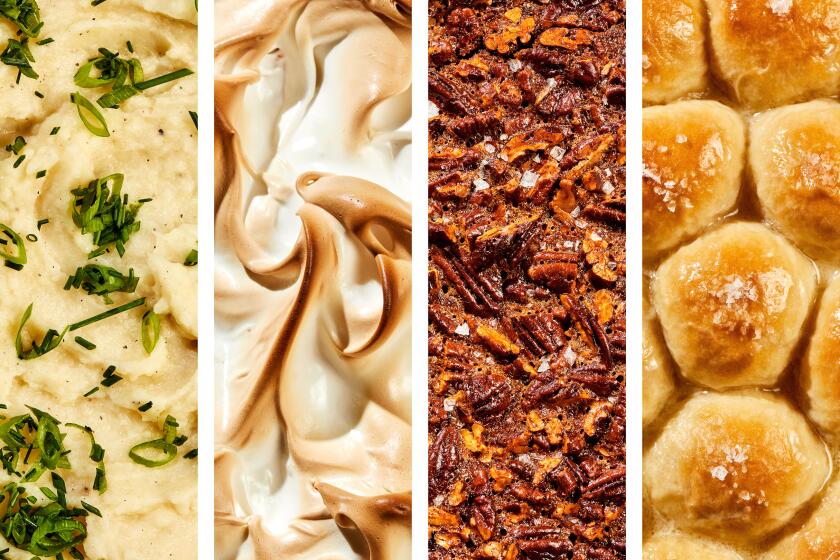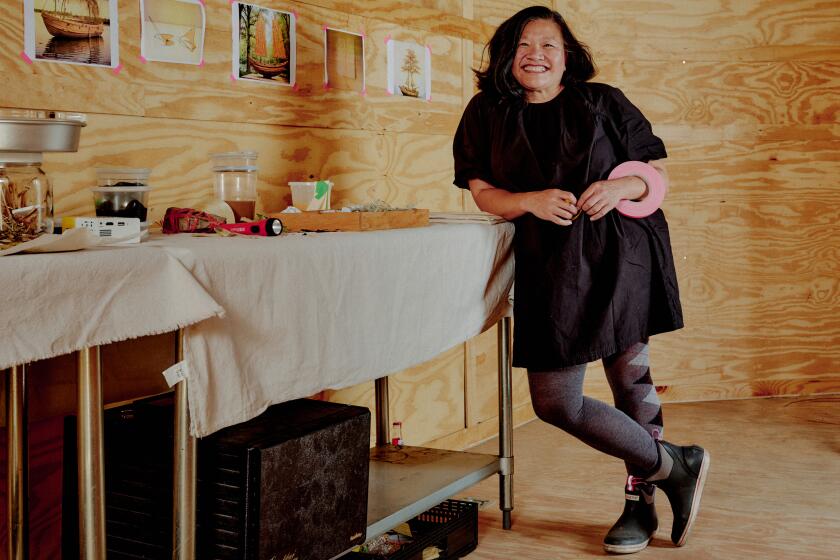Appreciation: Mark Peel, ‘the LeBron James of the grill,’ an intellectually curious chef’s chef
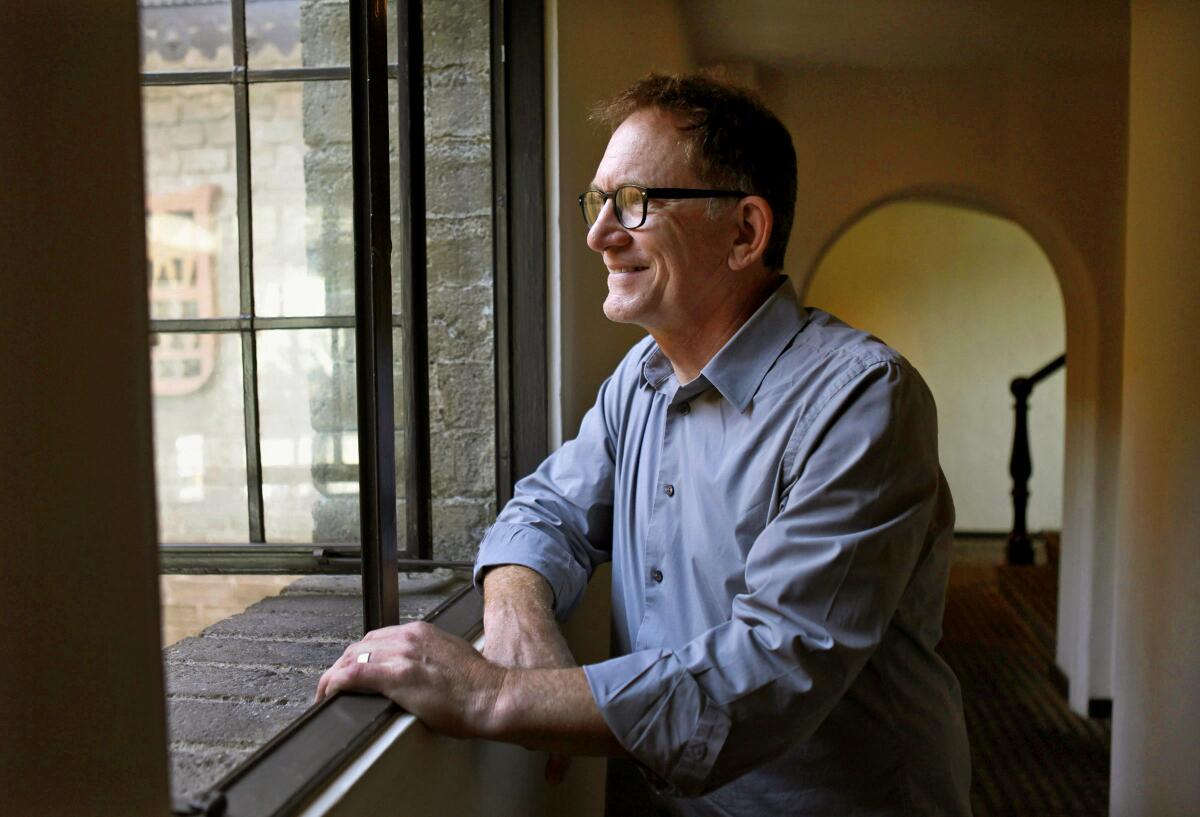
Mark Peel came of age during the rise of the celebrity chef — he was Wolfgang Puck’s opening chef at Spago, after all. I can’t say he objected to the attention that came his way after 1989 when he and Nancy Silverton opened Campanile, a restaurant that helped define urban rustic cuisine and was an essential part of Los Angeles’ food scene until its 2012 closure. Yet Peel was less a celebrity chef than a chef’s chef, most comfortable behind the grill or sharing with customers an oddball fact he’d just read.
If you ever saw Peel approaching your table with a certain gleam in his eye, you knew a good story was coming. Or a particularly delicious bite of a dish he’d perfected. The man was generous with his food and his knowledge.
There was a period in my life when my husband Jonathan Gold and I were Campanile regulars. Sometimes we’d eat at the counter and banter with Nick the bartender while Silverton worked the sandwich press on grilled cheese nights. But the most exciting seats in the house were the ones with a view of Peel at the grill. As the restaurant’s co-owner, he could have left the hottest spot in the restaurant and played the traditional chef’s role of expeditor, wiping sauce from plate rims and adjusting the garnish. But he was the restaurant’s grill master — or, as Jonathan wrote in 2008, “the LeBron James of the grill” — the one who knew how to make sure every piece of meat or fish on the plate was luscious, with just the right amount of smoke and char. This job, more than protecting the plates from a stray drop of demiglace, was critical to the restaurant’s success. Plus, he seemed at ease “in the weeds,” as he’d say, calling out orders, checking plates on their way to customers, joking with a passing waiter and flipping a steak before the grill’s flames overtook the meat.
“You always want to play it close to the edge,” he told me when I was writing a story about the process of opening Campanile. “If it’s too easy, you get sloppy.”
Mark Peel helped introduce countless Los Angeles diners to farm-to-table dining.
I think this attitude came from his restaurant beginnings, even before his transformative days with Wolfgang Puck at Ma Maison and Spago, with Alice Waters at Chez Panisse and with Michael McCarty and Jonathan Waxman at the rules-busting Michael’s in Santa Monica. He used to talk fondly of his time at the stove at Cindy’s, a Denny’s-style truck-stop coffee shop off the 60freeway not far from where it meets the 605 in El Monte. This is where I imagine he learned not to take himself too seriously even though he was a voracious reader and one of our most intellectually curious chefs.
It doesn’t seem fair that Peel, who died Sunday at 66, left us less than a week after California dropped its COVID-19 restrictions and restaurants started to open again at full force. Though he’d eased up in recent years, I occasionally caught him at his Prawn Coastal (originally Bomba) inside the Grand Central Market, working the globe-shaped steam kettles, like the ones for oyster stew at New York’s Grand Central Oyster Bar. That was before the pandemic. I was hoping to return to Prawn this summer, grab a seat at the counter and maybe watch him serve a bowl of paella along with an earful about his latest obsession, maybe a new ingredient or a strange historical fact.
Instead, I’m looking at a photograph our friend Anne Fishbein took of Mark Peel and Jonathan in our backyard as they triumphantly put the last piece in place of a ridiculously massive Weber kettle grill — the 37-inch ranch style that is overkill for all but the biggest crowds. Peel couldn’t stand that Jonathan, who freely admitted to his lack of mechanical prowess, might leave the grill unbuilt over the summer. In Peel’s world, no grill should go unused.
And no chef should be far from the stove. Over the weekend, Ruth Reichl was telling me about how she’d prematurely declared the end of the celebrity chef — in 1989 — and when I looked up the piece, I wasn’t surprised to find that Peel was one of her prime examples.
“You’re talking to the wrong guy. I don’t want to be a celebrity chef,” he told her for the story. “It’s too much work — traveling all over, having your picture taken. It’s insidious. The danger is you stop paying attention to what you’re supposed to be doing — you stop thinking about cooking. And that’s why I got into this business in the first place. I can’t sing, I can’t dance, I can’t play the saxophone. But I really can cook. And that’s what I want to do.”
He did it brilliantly.
Laurie Ochoa has worked as a writer and editor in the Los Angeles Times Food section, served as executive editor at Gourmet magazine and is The Times’ arts and entertainment editor.
If you whittle down the list of restaurants that shaped modern Los Angeles dining culture — the places where the now-stereotypes of California cooking were once fresh revelations, from which influences continue to ripple even if younger generations have no knowledge of their origins — Campanile would hover in the top five, maybe even the top three.
Campanile closing? The dining scene loses a standard-setter
More to Read
Eat your way across L.A.
Get our weekly Tasting Notes newsletter for reviews, news and more.
You may occasionally receive promotional content from the Los Angeles Times.

